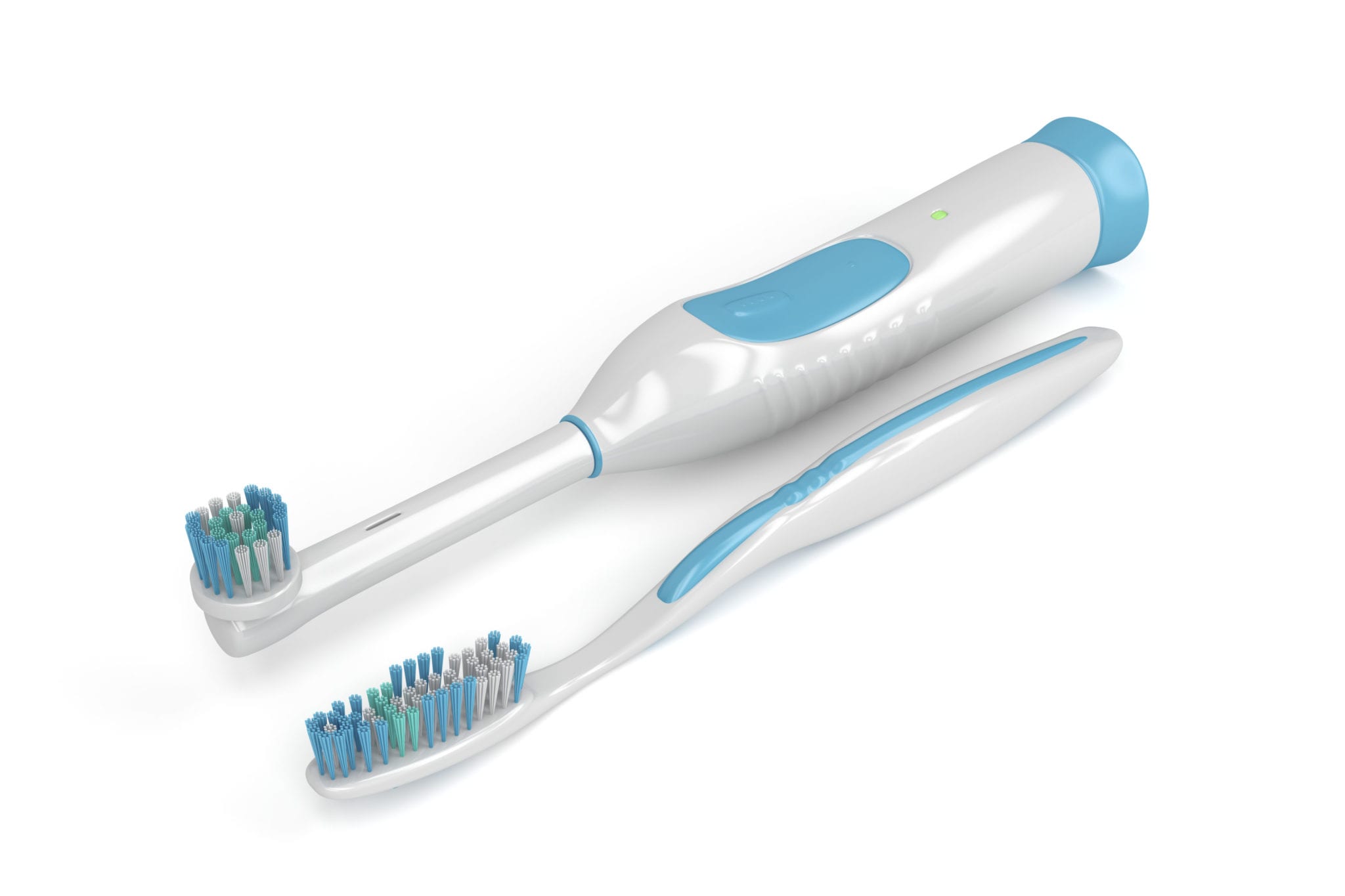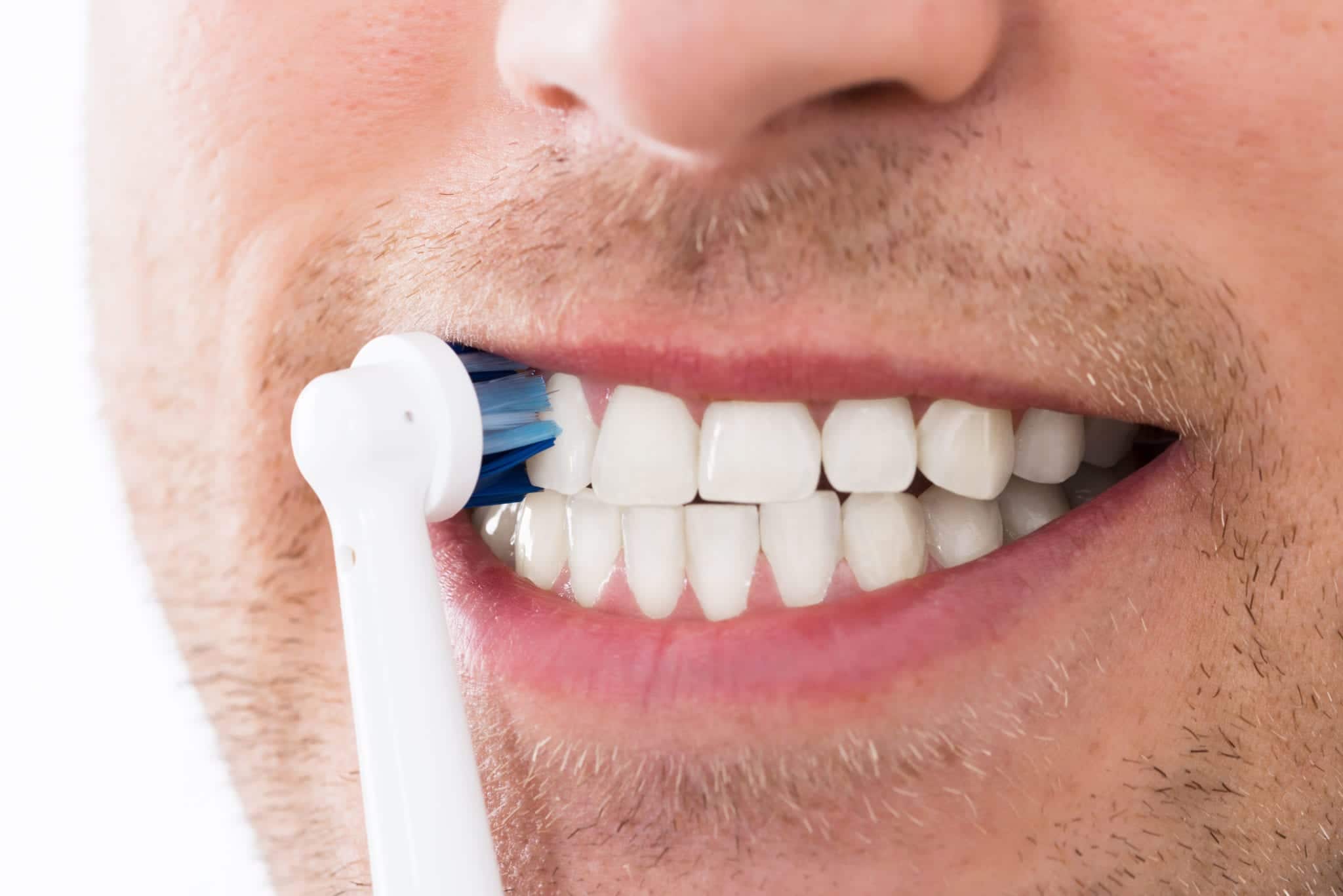
Going down the toothbrush aisle can be overwhelming because there are so many options to choose from. What size do you need? Do you want hard, medium, or soft bristles? Do you want a tongue scraper on the back? Are your teeth sensitive?
Besides those questions, you should probably start off by asking yourself if the best toothbrush is a manual or electric toothbrush. Manual toothbrushes are tried and true, but the idea of an electric toothbrush doing the hard work for you is definitely appealing, right?
So let’s delve into the world of electric toothbrushes and see if they’re really worth it.
What Is an Electric Toothbrush and How Does It Work?
An electric toothbrush is a toothbrush where the bristles move quickly in either a vibrating back-and-forth or rotating motion to clean your teeth.
Most electric toothbrushes are powered by some sort of battery – unless you’re talking about an ultrasonic toothbrush, which is powered by a piezoelectric crystal. Manual toothbrushes, on the other hand, are powered by elbow grease. In other words, you.
Another difference between manual and electric brushes? Instead of needing to get a whole new toothbrush every few months, once you’ve worn out the bristles of your electric toothbrush, you only have to replace the head.
Benefits of an Electric Toothbrush
There are a number of benefits to using an electric toothbrush, such as:
- Better cleaning power. There used to be a time when manual and electric toothbrushes were equal in cleaning your teeth as long as you brushed for two minutes, but in recent years, electric toothbrushes have gained a cleaning edge. A recent study found that, after three months of use, electric toothbrushes reduced plaque by 21 percent more and gingivitis by 11 percent more.
- Getting those hard-to-reach places. An electric toothbrush allows you not only to reach the very back of your mouth, it also ensures that that area will be just as clean as the easy-to-reach spots.
- Making brushing easier. For some, brushing your teeth can feel like a chore. An electric toothbrush makes it easier for kids, anyone with braces, lazy brushers, or those who have arthritis or other issues with their hands.
- Built-in features. Depending on the type of electric toothbrush you have, you might have access to a number of useful built-in features that could include timers, multiple cleaning modes like daily clean, deep clean, or whitening, pressure sensors, and even Bluetooth capability.
Are There Any Disadvantages to Using an Electric Toothbrush?
For some people, the cost of an electric toothbrush might turn them off. They cost more than a manual toothbrush – sometimes significantly more – and you still have to replace the heads as often as you replace a manual toothbrush.
Remember this, though: when you decide to purchase an electric toothbrush, you’re investing in your long-term dental health. If an electric toothbrush keeps your teeth and gums cleaner and healthier, you might not have to spend as much time in the dentist chair or as much money on dental bills later on.

Ultimately, it really comes down to preference. If you like your toothbrush, you’ll actually enjoy brushing your teeth. If you don’t like your toothbrush, your dental hygiene might slip a bit, which could mean more plaque, more cavities, and other dental issues down the road.
Electric toothbrushes are a great tool to help you clean your teeth, but, as long as you’re brushing at least twice a day for two minutes and going to your dentist regularly, any toothbrush can get the job done.






